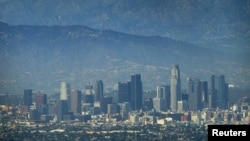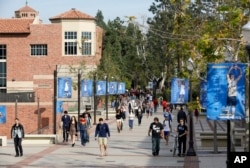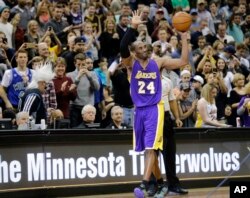As Los Angeles celebrates its fifth straight year of record-breaking tourism, officials in part can thank visitors from China who, despite their reputed disdain for lying on the beach, now make up the second-largest group of international travelers to this sun-drenched city.
In fact, China — which a decade ago was not a major player in the Southern California tourism game — last year sent nearly 800,000 people to visit the shops, museums and tourist attractions in and around America's second-largest city. And Chinese tourists often stay longer and spend more money than their counterparts from elsewhere in the world.
"There is a fascination in China for Los Angeles," Ernest Wooden, president and CEO of the Los Angeles Tourism and Convention bureau, told Reuters in an interview.
"It's easy to imagine that much of what the Chinese know about living in the United States, the slang, the hip hop, the technology, comes from the movies," Wooden said. "And L.A. has that pedigree."
That fascination drove a 13 percent increase in visitors from China over 2014. Wooden said he expects the trend to continue for at least another few years, defying that country's softening economy.
Chinese travelers are also major educational tourists. Those seeking a Western education for their children often choose UCLA or the University of Southern California, which is second only to New York University in enrolling foreign-born students.
Medical tourism draws patients from China to hospitals such as Cedars Sinai, City of Hope and Ronald Reagan UCLA Medical Center, seeking cutting-edge treatments for cancer and other serious illnesses.
Warm beer and Kobe Bryant
Wooden also credits an aggressive outreach centered on the city pitching its charms directly to the Chinese people, the first major U.S. city to do so. The effort, which started with ensconcing city employees in Beijing nearly a decade ago, was later expanded to Shanghai and, this year, Guangzhou.
Last year Los Angeles launched its so-called NiHao China program, which includes a Chinese-language website, a larger presence on the popular Weibo social media site, and partnerships with major travel companies serving that market.
Part of that marketing success involves the city's efforts to understand and cater to Chinese tourists, Wooden said, most of whom do not sunbathe and typically spend little time appreciating Southern California's famed beaches.
Instead they are drawn by the museums, Hollywood, amusement parks such as Disneyland in nearby Orange County, and upscale shopping centers, spending more than most tourists and tending to stay in town longer.
Wooden said hotels have learned such cultural nuances as serving beer warm, providing slippers for Chinese visitors who would rather not walk barefoot on carpet and offering television stations that broadcast in Mandarin.
Vicky Liu of Galaxy Tour Inc., which specializes in serving the Chinese market, said Los Angeles has gotten some of those seemingly smaller details right, such as having someone at hotels who can speak the language.
But Wooden concedes that the ground is moving under the city's feet. A new, more sophisticated generation of travelers is coming into its own, moving away from tour groups in favor of their own itineraries, planned on smartphones.
"They will come here and rent cars on their own,” he said. “They are wealthier, often highly educated, and willing to venture out to San Francisco, San Diego, Las Vegas. They love the Lakers, they deify Kobe Bryant. That's a demographic shift."








